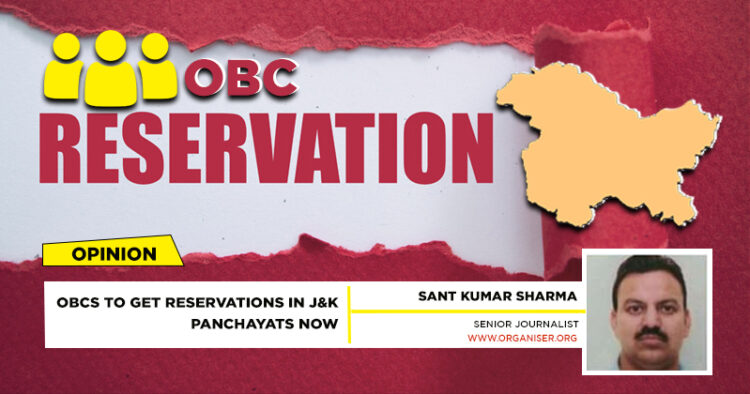Just as Jammu & Kashmir had its own constitution till August 5, 2019, it also had its own Jammu & Kashmir Panchayati Raj Act, 1989. The State-Specific Act will now be amended as necessary approvals were accorded on December 28 by the Administrative Council (AC) headed by LG Manoj Kumar Sinha. The Jammu & Kashmir Act disempowered the panchayats of Jammu & Kashmir as the enabling provisions which were enshrined in 73rd Amendment were not fully applicable in the state. Under the 73rd Amendment, passed by the Indian Parliament in 1992, power was decentralised.
The resulting decentralisation had led to a situation where decision-making regarding development works became the domain of local panchayats, instead of the Union and State Governments. The 73rd Amendment Act also led to the devaluation of substantial funds to three-tier panchayats all over India, except Jammu & Kashmir. This was done mainly to concentrate all powers (and funds) in the hands of the legislators (MLAs and MLCs) in Jammu & Kashmir, contrary to the scheme of things as envisaged by the Indian Parliament.
During the time Omar Abdullah was Chief Minister of Jammu & Kashmir, panchayat elections were held in late 2010. Each panchayat was given Rs 1 lakh during the entire tenure of five years and that translates to Rs 20,000 per panchayat per annum only. Compare that to the situation prevailing in December 2023 after the abolition of Article 370 and 35-A.
According to Anil Sharma, Sarpanch of Jandrah panchayat in Jammu district, this amount has seen at least a 100-fold jump. Nowadays, each panchayat gets, on an average, between Rs 20 to 22 lakh per annum. Earlier, the funds meant for panchayats were illegally spent by the District Development Boards (DDBs) presided over by ministers, he pointed out.
On December 28, Administrative Council (AC) under the chairmanship of LG Manoj Sinha approved carrying out amendments in Jammu and Kashmir Panchayati Raj Act, 1989. The definition of OBCs has now been added in the Act to ensure reservations in the panchayats at all level, gram panchayat, block level panchayat, as also district level panchyat bodies.
Advisor to the LG Rajeev Rai Bhatnagar, Chief Secretary Atal Dulloo and Principal Secretary to Lieutenant Governor Mandeep K. Bhandari attended the meeting at which the decision to give reservations to Other Backward Classes (OBC)s in panchayats was taken.
Earlier, the draft Jammu & Kashmir Panchayati Raj Act (Amendment) Bill. 2023, had been submitted to the Union Ministry of Home Affairs. The LG-headed AC incorporated suggestions given by the Ministry of Home Affairs (MHA) in the revised draft of Jammu & Kashmir Panchayati Raj Act (Amendment) Bill.
The Amendment bill proposes incorporation of definition of OBCs for providing reservation to them. The bill also explains method of disqualification from membership of gram panchayat, suspension and removal of Sarpanch, Naib-Sarpanch and Panch by the Government. It also defines process for removal and conditions of service of State Election Commissioner (SEC) here.
The proposed amendments aims to make Jammu & Kashmir Panchayati Raj Act, 1989, more effective by ensuring transparency in functioning of PRIs. These amendments will also ensure that the Act is in alignment with what happens in other states where OBCs get reservations in panchayat bodies, besides Scheduled Castes (SC)s and Scheduled Tribes (ST)s.




















Comments